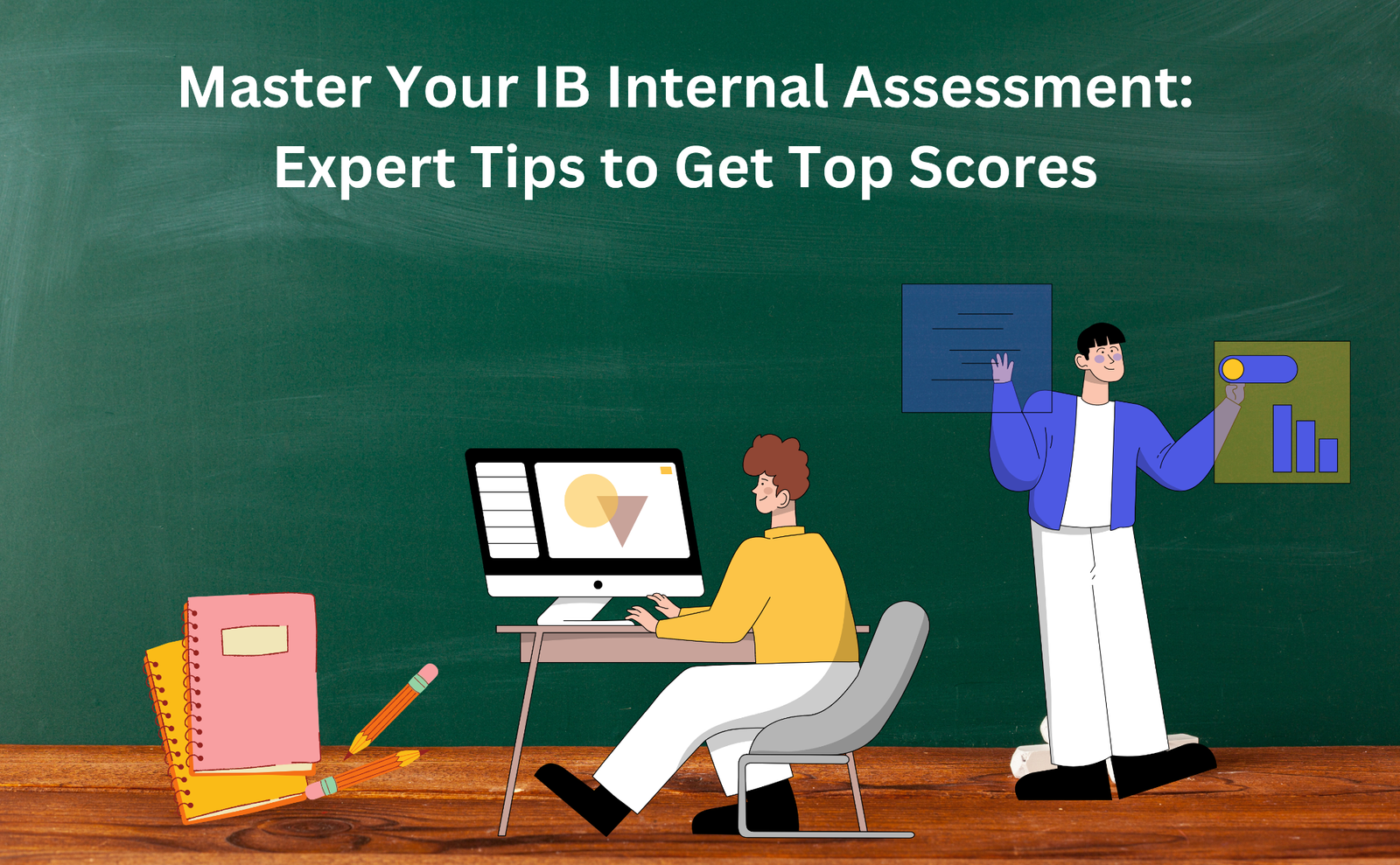OUR BLOG
Master Your IB Internal Assessment: Expert Tips to Get Top Scores
The International Baccalaureate (IB) Diploma Program is a course of 2 years that assesses students in numerous ways. It encourages the application of your subject matter in the real-world. Throughout the study, students have to go through multiple assignments, such as writing essays, making presentations, writing examinations, and IB Internal Assessment (IA).
The international assessment plays a major role in the IB Diploma Programme (DP). It is a form of examination that is accessed by your teachers instead of an IB examiner. Students are advised to prepare for their IB assessment in advance. Let us understand its crucial criteria and how students should prepare themselves for the assessment.
What are the IB internal assessment criteria?
The IA follows certain criteria to mark the students on the assessment. Below are the major criteria that you should follow if you want to score high in IA:
a. A student should demonstrate an in-depth understanding of the chosen subject matter.
b. Strong application of knowledge regarding the research question or study.
c. Ability to critically analyse and evaluate information with the support of sources and research papers.
d. Effective explanation of concept by clearly defining the ideas in a concise structure—without using jargon.
e. Structure your theories in a neat presentation or as recommended by the IB board.
Top Tips for IB IA
After understanding the IB assessment criteria, it’s time to take a step towards studying the internal assessment strategies. The following are the essential preparation tips for success in IB internal assessments.
Know your requirements: Students are advised to go through a thorough understanding of the criteria of each department. Get more information on how to get a high score on IB IA.
Choose a topic of your interest: Pick a subject that interests you and you will enjoy researching it. Don’t look for subject matters outside your understanding to avoid errors and burnout while presenting it.
Conduct thorough research: A deep analysis about the chosen topic is required to move forward with the assessment. Go through study materials such as research papers, guides and other articles to churn out valuable information.
Create an effective structure: The IB diploma course is all about maintaining the formal structure. Present your assessment in a neat, clear and effective manner.
Follow the word count: Make sure that your assessment falls under a specific word count. Don’t stretch it to be very lengthy nor keep it too short. Cover all the details effectively and in a presentation way for the teachers to mark a high grade.
Use tools to analyze your research: Students can utilise online tools and resources to validate their study material and pointers. With the help of new and advanced tools, students can make the most of the internet.
Use clear language and proofread for errors: Keep your language clear and crisp. Ensure that there is no grammatical error or spelling mistake throughout the assessment.
Edit the draft and collect feedback: Submit your assessment after a final review to ensure high-quality. You can also ask peers for feedback to improve your work. Collect feedback from friends, IB scholars, IB online tutor, etc. to improve your work.
Students should apply the given measures and tips on how to score on an IB Internal Assessment (IA) for a successful result.
How to write a good IB internal assessment?
The IB internal assessment majorly covers six sections. By adhering to the IB internal assessment guidelines, students can succeed in their IA. Start with choosing a topic that is easy to manage. Try to be as specific as you can to simplify your research work.
Begin with the cover page that consists of the title, name of the student, school, subject details and date of submission. Next, create a comprehensive table of contents. Once your basics are complete, follow the given sequence:
1. Introduction
2. Research question
3. Methodology
4. Results
5. Discussion
6. Conclusion
In the end, add the references and appendices to list all the sources that contributed to the project. Make sure that you follow a standard citation style. Also, add the other external resources, such as raw data, survey results, interviews and magazine articles.
Conclusion
Now that you have a core understanding of the IB Internal Assessment (IA) and tips for success in IB internal assessments, it is time to find a trusted IB online tuition provider.. At Baccalaureate Classes, we guide the students on how to score on an IB IA and other examinations such as SAT, ACT and AP examinations. Our global network of IB tutors. offers high-quality online online B tutor services to students who need IB tuition support.
Get more information here.

